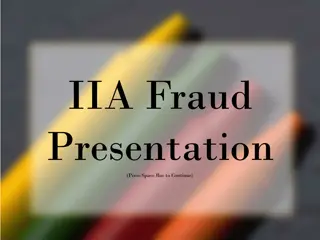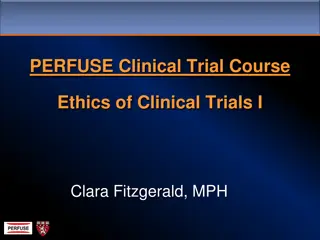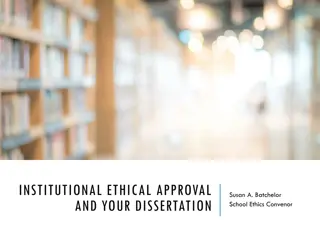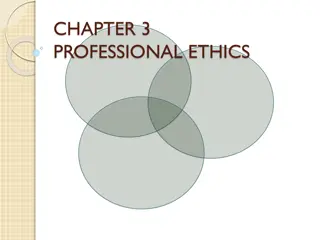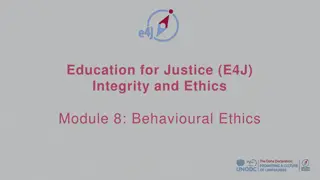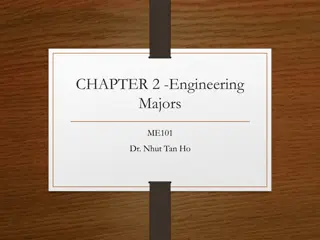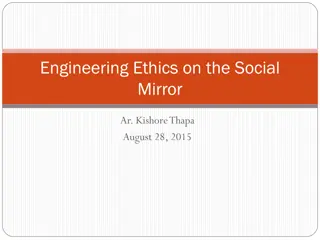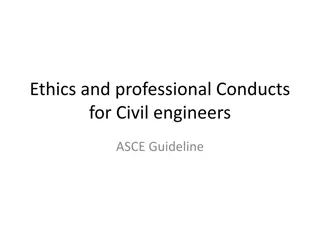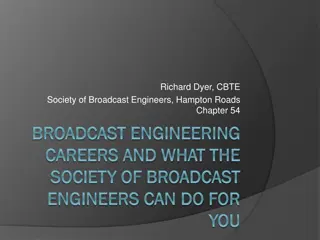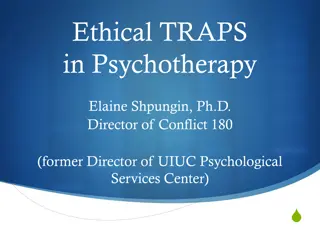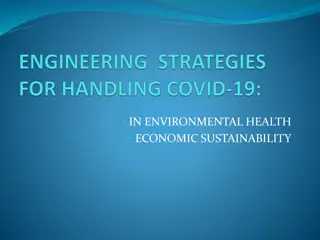Overview of Ethical Guidelines for Engineers
Engineers must prioritize societal interests, legal compliance, and professional ethics in their decision-making. They should maintain integrity in dealing with clients, suppliers, other engineers, and the public, while upholding confidentiality and avoiding conflicts of interest.
Download Presentation

Please find below an Image/Link to download the presentation.
The content on the website is provided AS IS for your information and personal use only. It may not be sold, licensed, or shared on other websites without obtaining consent from the author.If you encounter any issues during the download, it is possible that the publisher has removed the file from their server.
You are allowed to download the files provided on this website for personal or commercial use, subject to the condition that they are used lawfully. All files are the property of their respective owners.
The content on the website is provided AS IS for your information and personal use only. It may not be sold, licensed, or shared on other websites without obtaining consent from the author.
E N D
Presentation Transcript
Ethics A brief overview
Purpose To guide the conduct and decision making of engineers. Requirements for engineers: Render faithful, honest, professional service, representing Represent the interests of their employers or clients, along with public health, safety, and welfare. Important distinction between what is legal and what is ethical.
Ethical Priorities (in order) 1. Society and the public 2. The law 3. The engineering profession 4. The engineer s client 5. The engineer s firm (i.e. employer) 6. Other involved engineers 7. The engineer personally (i.e. you)
Dealing with Clients/Employers Do not accept assignments without the skill, knowledge, or time to complete Recognize your own limitations Protect the client s interest Not bound to client s want if they will be unsuccessful, dishonest, unethical, unhealthy, or unsafe. Keep client information confidential. Avoid conflicts of interest Inform clients when this occurs Avoid the appearance of a conflict of interest Sole income should be from the client If recommendations are rejected, explain the consequences Admit any errors made to the client
Dealing with Suppliers Do not accept or solicit gifts during, prior to, or after any job Enforce plans and specifications Plans and specifications must be complete, definite, and specific Suppliers should not be required to provide something not in the specifications Do not unduly delay the performance of suppliers.
Dealing with Other Engineers Do not attempt to maliciously negatively affect the reputation, practice or employment of another engineer Do not review another engineer s work while they are still employed, unless they are made aware Do not try to replace an engineer which is currently employed Do not take advantage of competitive salary position to compete unfairly Freely report, publish, and distribute information that would be useful to others (unless bound by legal or proprietary constraints)
Dealing with the Public Consider safety, health, and welfare of the public in all work performed Refrain from self-laudatory advertising When issuing a public statement, clear indicate if it is on anyone s behalf Keep skills at a state-of-the-art level Develop public knowledge of the engineering profession (self-awareness) Notify authorities when decisions adversely affecting public safety and welfare are made




